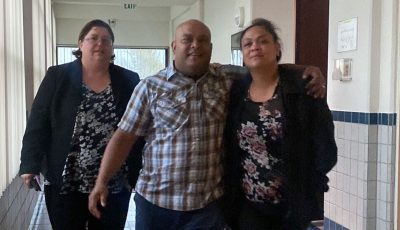Living life and making a living
As pastor to the Guam United Methodist Community Church in ’83, after a decade of service with the global staff of the Institute of Cultural Affairs concerned with the human factor in global development, I overheard my oldest daughter conversing with our neighbor.
“What does your father do,” the neighbor asked.
“He does development,” was my daughter’s reply.
“Is he rich?”
“No, but he makes other people rich.”
Not exactly the way I would have scripted the conversation, but this was real life, not a staged one. My daughter at 10 was only narrating her experience and telling it in the metaphors she grew up in.
I do not have anything against wealth. I wish I had a bundle and change. Or, more accurately, I wish I had the relentless hunger of one who would not sit still unless one was earning something at every turn. My passion has been directed elsewhere.
Worldwide, the discipline of making a living dominates our lives. We watched last week foreign students from Third World countries, Nigeria, Ghana, Sri Lanka, India, Cote d’Ivoire, and industrialized France, inter alia, graduate in their selected course from our Aerospace University.
As an institution of higher learning, the event was auspicious in that it coincided with the exact time that the Shenzhou space capsule was returning from a successful docking with the Tiangong spacelab, with its three astronauts, including a woman.
The notion of a university, home of unified knowledge, is a medieval creation focusing on the development cognitive faculties. Thinking and research are cultivated virtues, and in a world whose stories revolve around genetic cause, happenstance of chance, and intentionality of choice, the university serves a vital function in the appropriation, anticipation, and management of cause, chance, and choice.
The sensuality of the body and the throbbing of the complex cardio-neural electro-magnetic field of the heart are left behind, critical in the art of living a life. But the resulting certificate’s capability to open doors for one’s employment is still higher learning’s rationale.
As shown in a video presented by the graduating French students, the learning experience was not confined to the classroom. The journey to a completion certificate looked more like culminating a sojourn on the assaulted confines of one’s protected ethnic universe by the awesome presence of the strange, profound, and the seemingly ridiculous environs of the emergent global Zhongguo.
For those who spent four years on campus, the day was a valedictory of a cocoon, a chrysalis, metamorphosing into the hudie, the butterfly, Zhongguo’s metaphorical symbol for anticipating the future with hope. “Dreams are rising from SAU,” declares Chairman Wang Wei’s message in the IEC English brochure.
I have often wondered how, each time we march into the athletic field on Sports Day, a ragtag army of foreigners looking like they are attired by Germans and organized by the Italians (my anti-Atlantic bias is showing) could fit into the carefully orchestrated and manicured environs of SAU.
The graduation exercise was an example of formal deformity. IEC Dean Chen opened the event on time but students colorfully attired continued to trek into the ceremonial hall half an hour later.
The presence of diplomatic dignitaries lent the traditional flavor of pomp and circumstance, but the elegantly dressed and well coiffed students belie the reality that here we have a creative lump of raw energy that can hardly be contained in the niceties of social ceremonies. The foreign students’ contingent was organized chaos, at best, in manners and behavior.
What we had was a graduation of Presence. It was not about the celebration of where students came from, nor the drum beating of a glorious future they are walking into. It was more an embodied declaration of being here, totally present for the moment, grateful for what had gone before, affirmative of what is yet to come, but celebrative of the sheer mysterious gift of the sounds of silence in the here-and-now.
A Chinese-Korean mother brings her not-yet 2-year-old to the remedial school where we hang out on weekends so that he can get familiar with this English teacher, and hopefully, would become one of our students. I refuse taking on the young one as a student, but it appears that the progress of the smart not-yet 4-year-old tot I am currently tutoring has caught not a few mothers’ attention. The mother, of course, is not intent in the delight of learning a second language, as she is interested in getting her son ahead of the line toward China’s version of Ivy League schooling!
The discipline of making a living remains everyone’s preoccupation. But I am with Dad on this one. Our pedagogy centers on the art of living a life. Period.
* * *
Jaime R. Vergara (jrvergarajr2031@aol.com) previously taught at San Vicente Elementary School on Saipan and is currently a guest lecturer at Shenyang Aerospace University in China.
By Jaime R. Vergara
Special to the Saipan Tribune




























